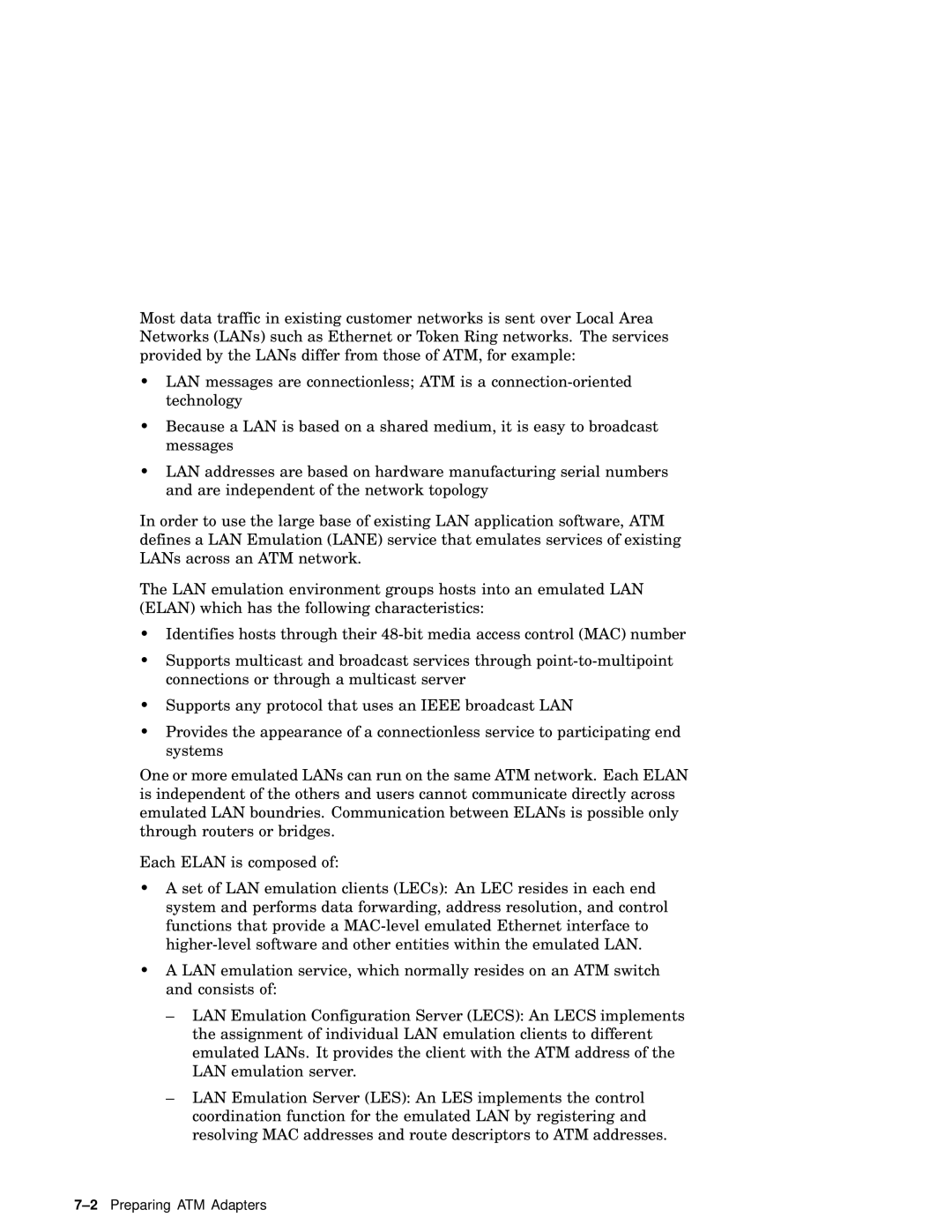Most data traffic in existing customer networks is sent over Local Area Networks (LANs) such as Ethernet or Token Ring networks. The services provided by the LANs differ from those of ATM, for example:
•LAN messages are connectionless; ATM is a
•Because a LAN is based on a shared medium, it is easy to broadcast messages
•LAN addresses are based on hardware manufacturing serial numbers and are independent of the network topology
In order to use the large base of existing LAN application software, ATM defines a LAN Emulation (LANE) service that emulates services of existing LANs across an ATM network.
The LAN emulation environment groups hosts into an emulated LAN (ELAN) which has the following characteristics:
•Identifies hosts through their
•Supports multicast and broadcast services through
•Supports any protocol that uses an IEEE broadcast LAN
•Provides the appearance of a connectionless service to participating end systems
One or more emulated LANs can run on the same ATM network. Each ELAN is independent of the others and users cannot communicate directly across emulated LAN boundries. Communication between ELANs is possible only through routers or bridges.
Each ELAN is composed of:
•A set of LAN emulation clients (LECs): An LEC resides in each end system and performs data forwarding, address resolution, and control functions that provide a
•A LAN emulation service, which normally resides on an ATM switch and consists of:
–LAN Emulation Configuration Server (LECS): An LECS implements the assignment of individual LAN emulation clients to different emulated LANs. It provides the client with the ATM address of the LAN emulation server.
–LAN Emulation Server (LES): An LES implements the control coordination function for the emulated LAN by registering and resolving MAC addresses and route descriptors to ATM addresses.
